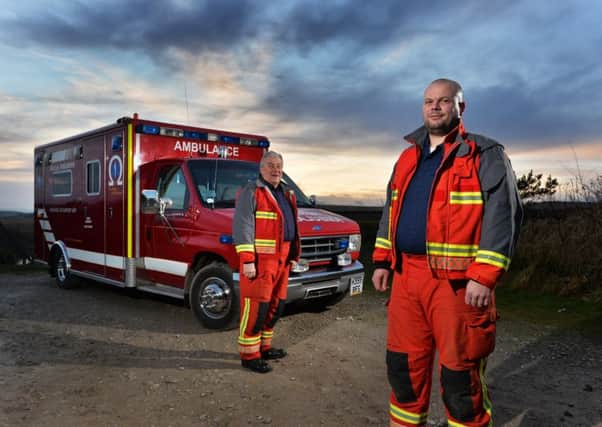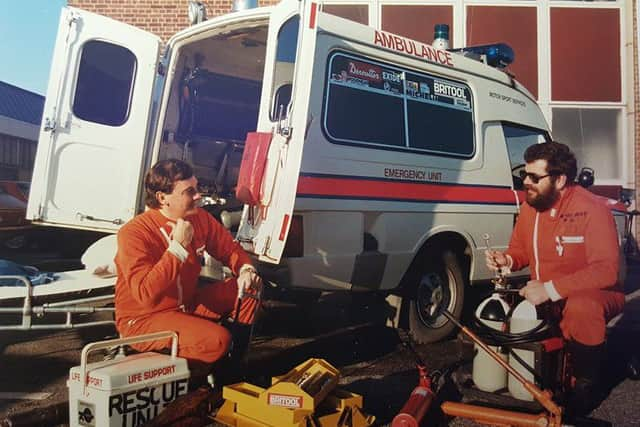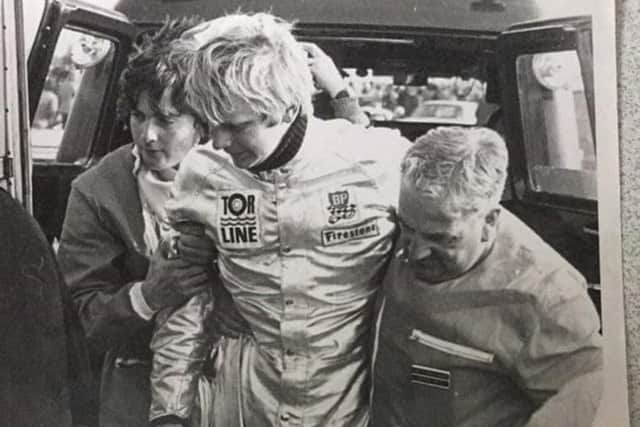Clocking 50 years of first aid in the (very) fast lane


But wasn’t the sight of Clark’s Formula Two Lotus-Cosworth somersaulting through the air and hitting a tree that spurred David and Leslie Barraclough into action – it was an equally tragic but more prosaic event in what was in 1968 still the North Riding of Yorkshire.
The two volunteer marshals watched helplessly as a driver spun off the track at the Croft Circuit, west of Yarm. Without a specialist rescue team on site, he died.
Advertisement
Hide AdAdvertisement
Hide AdThe Barracloughs, whose love of the sport had been forged on the speedway and stock car circuit at Odsal Stadium in their home city of Bradford, resolved never again to watch from the sidelines. They financed and set up the country’s first dedicated rescue unit – and yesterday their descendants were marking its 50th anniversary.


Their outfit, Motor Sport Services Organisation – founded with a converted Fort Transit van and an old stretcher – now boasts a fleet of three customised rescue vehicles, two imported from the US, containing first-response medical facilities and cutting tools that are normally the province of the Fire and Rescue Service.
“They’re clinical on the inside, greasy on the outside,” said Leslie’s grandson Karl Barraclough, who now runs the unit with his wife, Lexie, and father, Paul. Between them they attend around 60 events a year, from a base in Thornton, near Bradford.
Some 16 months ago, they were on the scene when the millionaire businessman Zef Eisenberg came off his gas turbine motorbike at around 250mph as he competed at a “top speed” event at Elvington airfield near York.
Advertisement
Hide AdAdvertisement
Hide Ad“We have had a bad run of quite serious incidents over the last three years,” said Karl Barraclough. “I think we’ve had the air ambulance out four times.


“Motorsport is very safe but when things do happen they happen very fast and unfortunately people do lose their lives.”
Mr Eisenberg broke 11 bones but returned to Elvington last year on another bike.
Four decades earlier, another record-chaser had a similar escape on the same track. David and Leslie Barraclough were on hand when a fuel tank exploded at 280mph on a car driven by the Swede, Arnold Sundquist.
Advertisement
Hide AdAdvertisement
Hide AdKarl Barraclough, who, like his father, has been a volunteer with the organisation all his adult life, said: “There was nothing like this in the country when my grandfather and uncle created it. Nobody had even thought of doing anything like it.”


His late grandfather, who was driving ambulances in Bradford when he set up the operation, kickstarted a mini-industry that now extends to around 40 licensed rescue units dotted around the country – some laid on by racetracks and others, like that of the Barracloughs, privately run and with no charitable status.
The family has just invested £30,000 in a set of hydraulic rescue tools – but Karl, whose full-time occupation is running a coffee shop in Brighouse and whose father is a retired businessman, said: “It’s about putting something back into the sport we love.
“We do it as a hobby, just as the marshals do.”